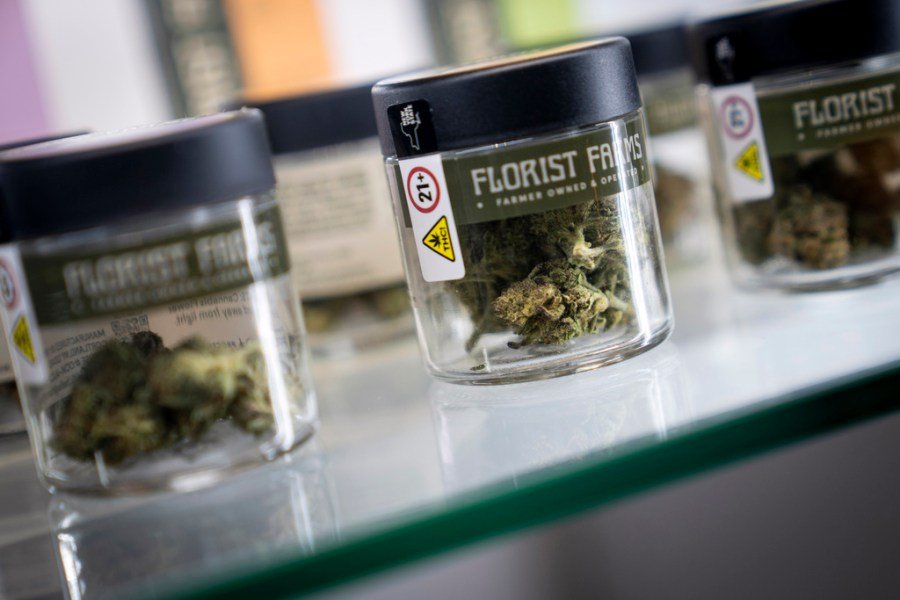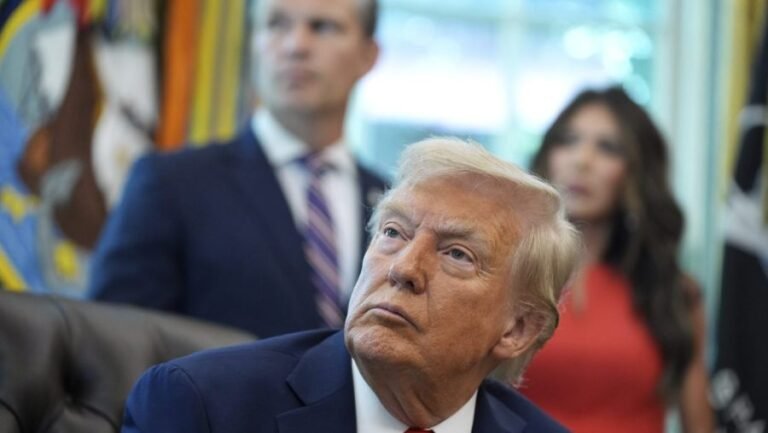
During my time in Congress, I learned that the best solutions to America’s toughest problems often come from the ground up — not from Washington down. That’s why I believe the debate over cannabis reform presents an opportunity for conservatives to lead with a states-first approach that respects the will of voters, supports law enforcement, and advances public safety.
Last month, President Trump reaffirmed that his administration is considering reclassifying marijuana as a less dangerous substance. He has been clear on this issue for some time. Last September, he stated that as president, he would support research into the medical uses of marijuana by moving it to Schedule III and work with Congress on common-sense laws that uphold states’ rights to set their own cannabis policies.
That approach — prioritizing states’ prerogatives, safe commerce and practical governance — should guide the next phase of cannabis reform.
By contrast, merely rescheduling cannabis, as the Biden administration previously proposed, will not solve the problem. It might ease some challenges, but it will not address the core conflict between state and federal law. Nor would it fully confront the pressing concerns communities face of shutting down illicit markets, protecting youth, reducing impaired driving and ensuring consistent consumer safety standards.
To solve those issues, Congress must act. A comprehensive framework like the STATES 2.0 Act would empower state and local leaders with the tools they need to make cannabis policy work in practice — not just on paper.
This bipartisan bill, led by Reps. Dave Joyce (R-Ohio), Max Miller (R-Ohio) and Dina Titus (D-Nev.), would let states that choose to legalize cannabis implement and enforce their own systems, while keeping federal prohibition in place for states that opt out. It is a clear, constitutional and conservative answer: Empower states, respect voters and keep Washington from dictating one-size-fits-all policy that simply doesn’t work anymore.
Recent national polling from the Coalition for Cannabis Policy, Education, and Regulation shows overwhelming public support for this approach. Nearly three-quarters of Republican and right-leaning voters — 72 percent — favor a bill that allows states to decide their own cannabis laws without federal interference. Across the political spectrum, 61 percent of all voters support the STATES 2.0 Act outright. Almost half of voters, 48 percent, say they would be more likely to support a candidate who backs reforming federal cannabis law, and 45 percent say they would feel more favorable toward the Trump administration’s agenda if it included such reform. These are not marginal numbers — they are a roadmap for bipartisan action that strengthens conservative leadership.
Support for a states-first approach is not limited to voters. Law enforcement leaders have increasingly recognized its value. The Peace Officers Research Association of California and the Oregon Coalition of Police and Sheriffs, representing thousands of officers, have endorsed the STATES 2.0 Act because it allows police to focus on keeping roads safe, disrupting cartel activity and cracking down on illegal markets — rather than diverting resources toward compliant small businesses.
The STATES 2.0 Act also includes safeguards that should matter to anyone serious about public safety. It establishes a minimum purchase age of 21 and incorporates proven strategies to prevent youth access. It empowers states to set and enforce clear standards for driving under the influence of cannabis. It disrupts the influence of Chinese and Mexican cartels in the U.S. cannabis market. And it implements robust tracking systems to ensure that cannabis products do not enter states where they are prohibited.
In other words, this bill is not about expanding federal power — it is about limiting it, restoring state authority, and focusing on core priorities that keep communities safe.
President Trump has built his brand on delivering results, keeping promises, and putting power back where it belongs: in the hands of the American people. By championing the STATES 2.0 Act, he can do what no other president has done: put an end to the war between states and the federal government over cannabis policy. He can protect conservative principles, foster economic growth, and address legitimate public health and safety concerns.
The country is ready for decisive action. Instead of letting unelected bureaucrats tinker with rescheduling and leave the core conflict unresolved, it’s time to solve the cannabis question once and for all — on terms that work for states, law enforcement, businesses and voters.
The opportunity is here, the polling is clear, and law enforcement is getting on board. Now it’s time to act.
Greg Walden is a former U.S. representative and co-chair of the Coalition for Cannabis Policy, Education, and Regulation.

